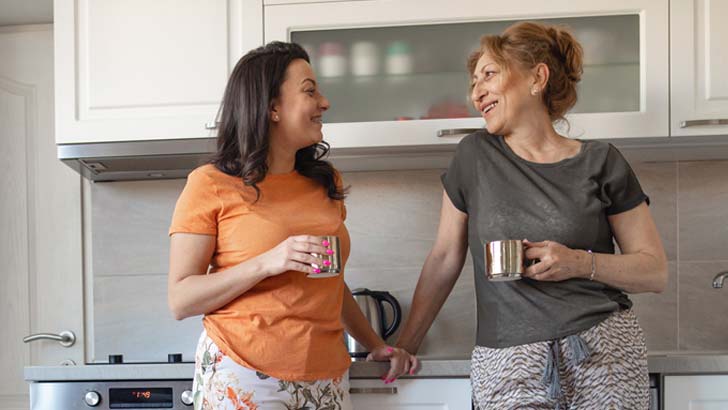No free ride: How to set rules when adult kids move back home
By Helen Baker
For years, Australia has seen a slow rise in multigenerational families, in part because of high real estate prices for homeowners and renters (particularly in Sydney and Melbourne), more years studying before entering the workforce, high divorce rates and our ageing population.
More than 50% of young Australians (aged 18 to 29) still lived with their parents last year, according to the latest Housing Income and Labour Dynamics (HILDA) survey data.
Now the coronavirus pandemic looks set to unleash a tsunami of Boomerang kids' returning home.
Home is where the heart is. There's no place like home. I get it.
Years ago, when I came back from working overseas, I moved back in with Mum because the house I owned was rented out and I really needed those tenants to help pay the mortgage until I got a new job here.
If your adult child is coming back to the fold, here are my smart tips to make it easier for everyone.
1. Talk about house rules and expectations
Your kids are not kids anymore. They are independent grown-ups too. Have a family meeting to broach conversations like money, boundaries and chores.
There'll be more cooking, cleaning and laundry to do. You don't need to do it all yourself!
2. Moving home is not forever
It's unlikely 'move back with the oldies' was on anyone's New Year's Eve wish list.
COVID-19 has shaken our economy: businesses were forced to close virtually overnight, and unemployment has skyrocketed as a result.
All parties need to keep in mind that this move home is not permanent.
Research published a few years ago suggested the move back home by adult children could be seen as 'failure'. That's something to bear in mind too. It's not: that kind of thinking is outdated. Desperate times call for desperate action.
3. Moving home is not a free ride
Australians who find themselves out of work as a result of COVID-19 may have access to immediate federal government payments through Centrelink.
The JobSeeker allowance is available for people who are aged 22 and over, while those under this age may be eligible for Youth Allowance. This is assessed differently in that dependant children aged 16-21 are subject to the parental income test (unless the person is independent) as well as a personal income test.
You may be tempted to cover your child's living expenses but resist the urge if they can take care of themselves. A roof over the head - coming home - creates a safe haven in a time of crisis and uncertainty that money can't buy.
Likewise, all adults are capable of doing the washing, changing sheets, taking the garbage out, washing up the dishes and cooking meals. Home is not a hotel.
4. Protect your financial position
At all costs, you need to protect your own financial future. Household expenses like groceries, electricity and water are likely to increase with another body in the house. Those are not expenses you need to carry alone.
Perhaps your adult child has come home with children of their own and sees you as a handy free babysitter. If that arrangement impacts your ability to earn, tell them to forget it. Once you leave your job, it may be very hard to change, and remember this situation is not likely to be long term.
On the other hand, you may both benefit from economies of scale. If you live alone and have worn all the bills yourself, splitting electricity and other bills could actually save you money.
Don't feel guilty! Your adult child, living alone, would be paying the full amount too. Look at it as a win-win, providing you put boundaries in place.
What's more, if you find yourself actually in a healthier financial position with an adult child back home, consider accelerating your position further by making a contribution to your superannuation. Depending on what you earn, the federal government may match it!
Or simply look at putting that money away in an investment you may not have been able to achieve before: you are still helping each other at this time.
It shouldn't need to be said but sadly does, given the rising incidence of elder abuse: just because an adult child pays board to live at home, and that money may help pay your mortgage, they're not buying themselves ownership.
5. Help stem their financial trickle
Few of us are immune to some financial leakage but it's easy to overlook small outgoings that just trickle away.
Perhaps you and the younger adults in your life can take time to review personal spending habits and practices. Unused memberships or subscriptions are a great place to start. Those weekly small-value direct transfers can add up to hundreds of dollars better used elsewhere.
Get stories like this in our newsletters.



